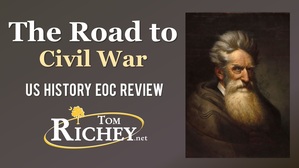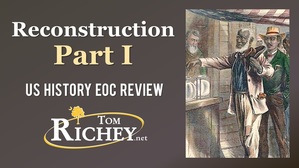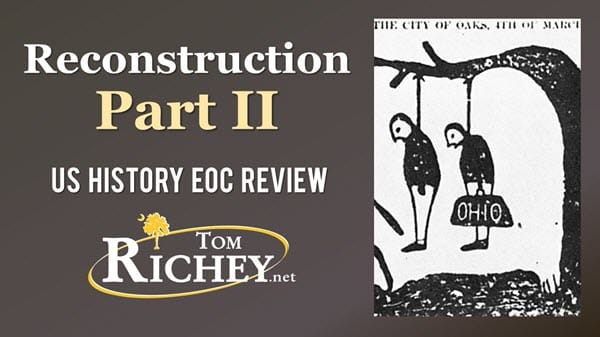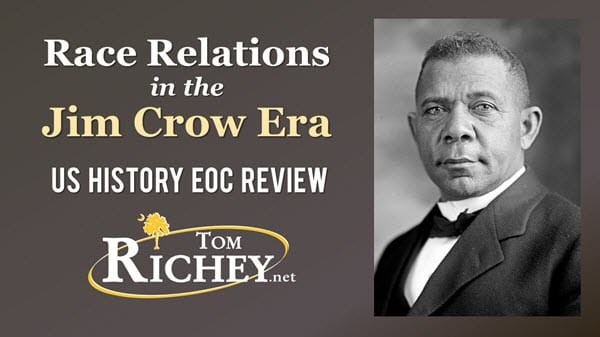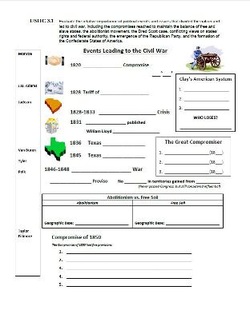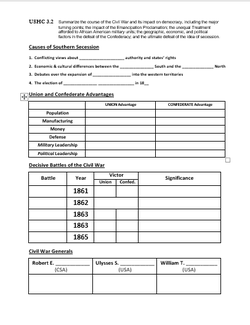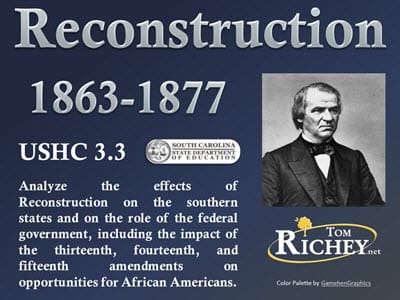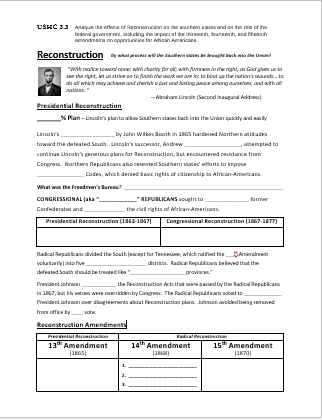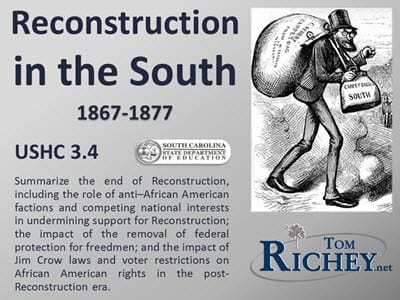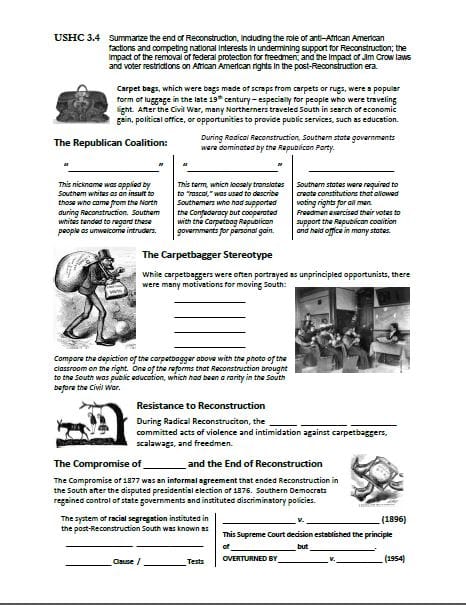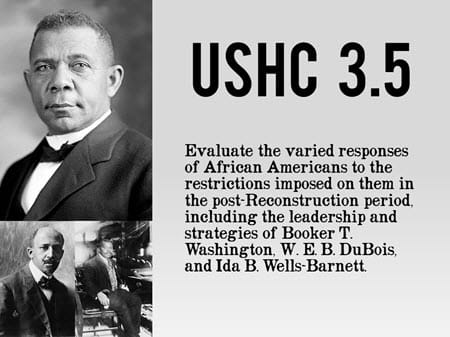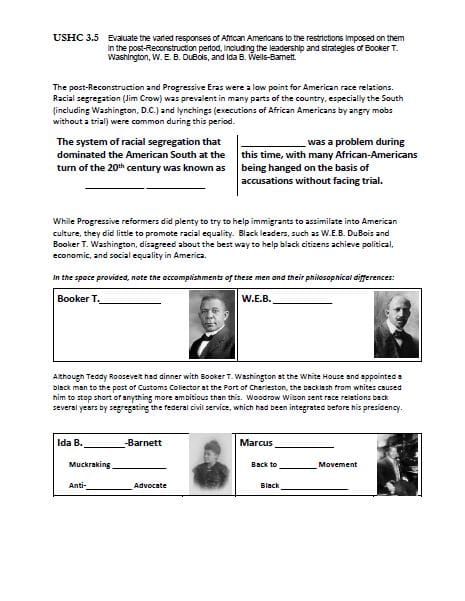Standard 3 for the South Carolina US History EOC addresses the causes, course, and consequences of the Civil War. Topics covered include events leading up to the Civil War, key events in the Civil War (e.g., Emancipation Proclamation), Reconstruction, and Jim Crow. The PowerPoints, YouTube videos, and handouts below address each of these topics. Click on an indicator to proceed directly to the specific subject matter you would like to study.
Select an Indicator:
USHC 3.1 |
Evaluate the relative importance of political events and issues that divided the nation and led to civil war, including the compromises reached to maintain the balance of free and slave states, the abolitionist movement, the Dred Scott case, conflicting views on states’ rights and federal authority, the emergence of the Republican Party, and the formation of the Confederate States of America.
|
Video LectureAudio Only (Download) |
|
USHC 3.2 |
Summarize the course of the Civil War and its impact on democracy, including the major turning points; the impact of the Emancipation Proclamation; the unequal treatment afforded to African American military units; the geographic, economic, and political factors in the defeat of the Confederacy; and the ultimate defeat of the idea of secession.
|
Video LectureAudio Only (Download) |
|
USHC 3.3 |
Analyze the effects of Reconstruction on the southern states and on the role of the federal government, including the impact of the Thirteenth, Fourteenth, and Fifteenth Amendments on opportunities for African Americans.
|
Video LectureAudio Only (Download) |
|
USHC 3.4 |
Summarize the end of Reconstruction, including the role of anti–African American factions and competing national interests in undermining support for Reconstruction; the impact of the removal of federal protection for freedmen; and the impact of Jim Crow laws and voter restrictions on African American rights in the post-Reconstruction era.
|
Video LectureAudio Only (Download) |
PowerPoint Slides |
Review Guide |
USHC 3.5 |
Evaluate the varied responses of African Americans to the restrictions imposed on them in the post Reconstruction period, including the leadership and strategies of Booker T. Washington, W. E. B. DuBois, and Ida B. Wells-Barnett.
|
Video LectureAudio Only (Download) |
PowerPoint Slides |
Review Guide |

